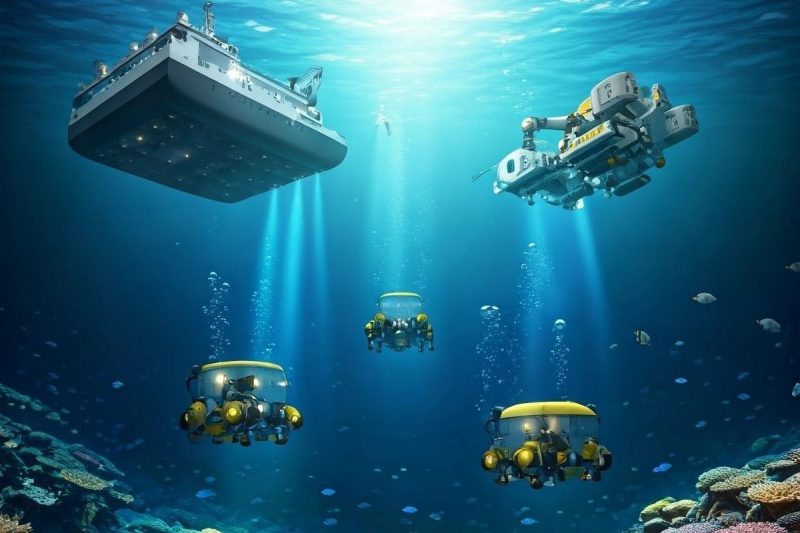
Norway Halts Deep-Sea Mining Amid Growing Environmental Worries
In recent years, the issue of deep-sea mining has gained significant attention as countries around the world seek to exploit the vast mineral resources lying beneath the ocean floor. However, concerns about the environmental impact of such activities have prompted governments to re-evaluate their plans. Norway, known for its commitment to sustainability and environmental protection, has recently decided to suspend its deep-sea mining plans in response to growing environmental concerns.
The decision by the Norwegian government to pause its deep-sea mining ambitions underscores the importance of considering the potential consequences of such activities on marine ecosystems. Deep-sea mining involves extracting minerals such as copper, nickel, and cobalt from the seabed, often through methods that can have detrimental effects on marine life and biodiversity. The delicate balance of the deep-sea environment, which is home to unique and poorly understood species, is at risk of being disrupted by mining operations.
One of the primary concerns surrounding deep-sea mining is the potential for habitat destruction. Mining activities can cause physical disturbance to the seabed, leading to the destruction of delicate ecosystems that have developed over thousands of years. Deep-sea habitats, such as hydrothermal vents and cold-water coral reefs, are particularly vulnerable to destruction from mining activities. These habitats provide essential ecosystem services, including carbon sequestration and nutrient cycling, and play a crucial role in maintaining the health of the oceans.
In addition to habitat destruction, deep-sea mining can also have negative impacts on marine species. Mining activities can stir up sediment on the ocean floor, leading to increased turbidity in the water column. This can smother benthic organisms such as corals and sponges, affecting their ability to feed and reproduce. The noise and vibrations generated by mining equipment can also disrupt marine life, causing stress and potentially driving species away from their natural habitats.
Furthermore, the potential for chemical pollution is a significant concern associated with deep-sea mining. Mining operations can release toxic substances into the water column, posing a risk to marine life and ecosystems. The use of chemicals such as cyanide and mercury in mining processes can have far-reaching impacts on marine biodiversity, affecting organisms at all trophic levels. Once released into the environment, these pollutants can bioaccumulate in the food chain, leading to long-term environmental harm.
The decision by Norway to suspend its deep-sea mining plans highlights the need for a precautionary approach to the exploitation of marine resources. Governments and industry stakeholders must consider the potential environmental impacts of deep-sea mining and take steps to minimize harm to marine ecosystems. Alternatives to deep-sea mining, such as recycling and developing more sustainable practices for resource extraction, should be explored to meet the growing demand for minerals without compromising the health of the oceans.
In conclusion, the suspension of deep-sea mining plans by Norway serves as a reminder of the importance of protecting the marine environment from potentially destructive human activities. As countries consider the exploitation of deep-sea resources, it is crucial to prioritize sustainability and environmental conservation to ensure the long-term health and integrity of our oceans. By adopting a precautionary approach and investing in more sustainable practices, we can strike a balance between meeting our resource needs and safeguarding the delicate ecosystems of the deep sea.
